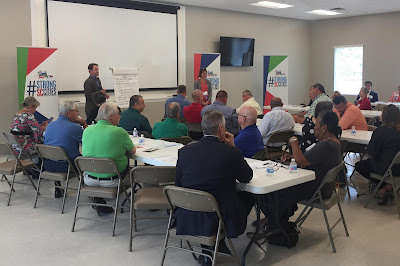Even though public comment periods can be a valuable channel of engagement, feelings among participating residents can run high and public participation can become disruptive during the business meetings of a council, with issues like speakers exceeding their time limit or inappropriate conduct.
Many city councils use timers for public comment periods during meetings, like this one used by the City of North Augusta.
State law requires public hearings for some actions taken by council at meetings, like the adoption of a budget or the adoption of a fee schedule. In other cases outside of this requirement, a city or town council will use ordinances or locally adopted rules of procedure to provide for and manage public comment periods.
This Uptown article takes a look at the approach to public comments taken by several municipalities — the City of Westminster, City of Columbia, Town of Seabrook Island and Town of Summerville.
The Municipal Association has another resource touching on this topic: the How to Conduct Effective Meetings handbook. It includes a sample set of rules of order that a council can adopt which include rules for speaking during a public comment period, with the following requirements:
- The speaker can comment on municipal issues other than personnel matters.
- The speaker must sign an agenda list maintained by the clerk before the meeting with the subject and purpose for speaking.
- The speaker is limited to two minutes.
As the rest of the handbook illustrates, thoughtful management of public comment periods are only one aspect of running meetings effectively. When handled well, these sessions can have a real impact on making sure that the voices of city residents are heard before council in a meaningful and useful way.


